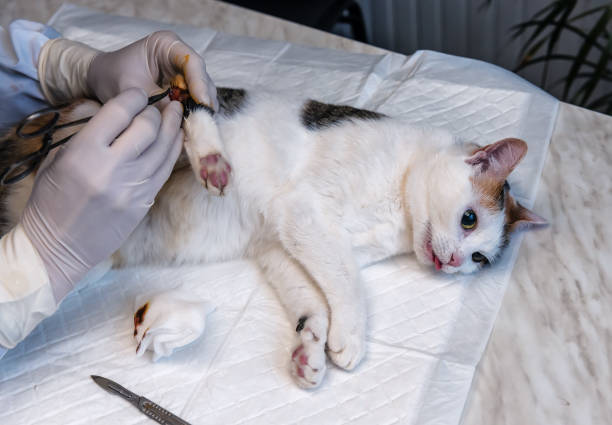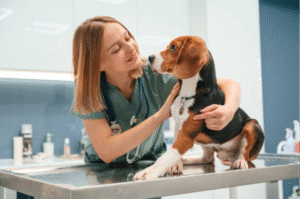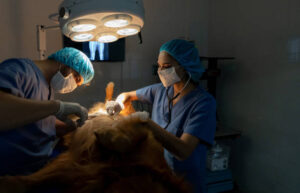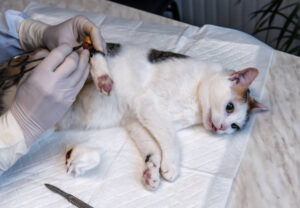Choosing the right pet spay clinic is one of the most important decisions you can make for your pet’s health and long-term well-being. If you are looking for a trusted animal hospital Renton WA, selecting a clinic with experienced staff and professional veterinary services ensures a safe, comfortable, and effective spaying procedure.
Spaying is not just a routine surgical procedure; it has significant health and behavioral benefits that protect your pet and support responsible pet ownership. In this guide, we will cover everything you need to know about the benefits of spaying, what makes a spay clinic trustworthy, and how to select the best veterinary spay services for your pet.
Whether this is your first time spaying a pet or you have experience with the process, understanding the importance of choosing a professional clinic is essential for your pet’s safety and recovery.
Health Benefits of Spaying Pets
Spaying provides a variety of physical, behavioral, and long-term health benefits for pets. It’s a preventive measure that protects pets from serious diseases and unwanted behaviors.
Reduces the Risk of Reproductive Diseases
Spaying significantly reduces the risk of reproductive cancers, including ovarian, uterine, and mammary tumors. Female pets who are spayed before their first heat cycle have a much lower likelihood of developing certain cancers later in life. Additionally, spaying eliminates the risk of pyometra, a life-threatening infection of the uterus common in unspayed females.
Helps Control Pet Overpopulation
Unplanned litters contribute to pet overpopulation, which often results in overcrowded shelters and increased euthanasia rates. By spaying your pet, you actively reduce the number of unwanted kittens or puppies. This not only benefits your community but also contributes to better animal welfare overall.
Behavioral Benefits
Spaying can improve your pet’s behavior. Female pets are less likely to display aggressive, territorial, or roaming behaviors associated with hormonal cycles. Spayed pets tend to be calmer, easier to train, and safer around other animals and people.
Long-Term Health Benefits
In addition to reproductive health, spaying supports overall wellness. Spayed pets often experience fewer urinary tract infections and may have a lower risk of obesity when paired with proper nutrition and exercise. These combined benefits make spaying a key component of responsible pet care.
What Makes a Spay Clinic Trusted and Safe
Choosing the right clinic ensures that your pet receives a safe, comfortable, and professional procedure. Here are the main factors that make a spay clinic reliable:
Experienced Veterinarians
A professional clinic employs veterinarians with specialized training in spay surgery. Experienced surgeons are prepared to handle complications, provide effective pain management, and ensure your pet’s overall safety. You should ask about the qualifications of the veterinary team and how many spay procedures they perform regularly.
Modern Facilities and Equipment
High-quality clinics are equipped with sterile surgical rooms, anesthesia monitoring systems, and clean recovery areas. These facilities reduce infection risk and provide an environment where pets can safely heal after surgery.
Comprehensive Aftercare and Support
A trusted clinic will provide clear post-operative instructions, including guidance on feeding, activity restrictions, and monitoring for signs of complications. Emergency contact information should also be available in case any issues arise after hours.
Pet owners often choose a pet spay clinic that offers structured aftercare programs to ensure proper recovery and peace of mind.
How to Choose the Right Veterinary Spay Services
Finding the best veterinary spay services involves evaluating several critical aspects of a clinic’s operation.
Affordability and Cost Transparency
While cost shouldn’t be the only factor, it is essential to find a clinic that offers transparent pricing. Look for clinics that balance affordability with high-quality care and provide clear explanations of all fees upfront. Avoid clinics that cut corners to lower prices, as this could compromise safety.
Reviews and Reputation
Check online reviews and ask for recommendations from friends, family, or local pet groups. Clinics with a strong reputation for quality care demonstrate reliability, professionalism, and consistent results. Testimonials can also provide insight into staff friendliness, communication, and overall experience.
Convenience and Comfort
Your chosen clinic should make both pets and owners feel comfortable. Friendly staff, stress-free environments, and clear pre-surgery instructions all contribute to a smoother experience. The right clinic will ensure your pet feels safe, and you feel confident in the care being provided.
Preparing Your Pet for Spay Surgery
Proper preparation is key to a successful procedure and smooth recovery.
- Health Assessment: Schedule a pre-operative exam to identify any underlying conditions that could affect surgery.
- Fasting Instructions: Follow the veterinarian’s guidance on withholding food or water before the procedure.
- Comfortable Transport: Ensure your pet’s transportation to and from the clinic is safe and stress-free.
- Recovery Area: Prepare a quiet, warm space at home for your pet to recover comfortably after surgery.
By carefully preparing your pet, you can minimize stress and reduce the risk of complications.
What to Expect on the Day of Surgery
Understanding the process can reduce anxiety for both you and your pet:
- Pre-Surgery Examination: The vet will review your pet’s medical history and perform a physical exam.
- Anesthesia: Your pet will be carefully anesthetized, with monitoring throughout the procedure.
- Surgery: The spay procedure is performed in a sterile, controlled environment by an experienced veterinarian.
- Recovery: After surgery, your pet will be monitored in a recovery area until fully stable.
Knowing the steps in advance helps you feel confident in the safety and professionalism of the clinic.
Post-Operative Care Tips
After the procedure, attentive care is crucial to ensure proper healing:
- Monitor the incision site for swelling, redness, or discharge.
- Limit activity and prevent jumping or rough play.
- Administer prescribed medications, including pain relievers and antibiotics.
- Schedule follow-up visits to ensure your pet is recovering properly.
Structured post-operative care reduces the risk of complications and promotes faster recovery.
Benefits of Choosing a Quality Pet Spay Clinic
Selecting a professional and trusted clinic ensures numerous advantages:
- Peace of mind knowing your pet is in experienced hands.
- Reduced risk of surgical complications.
- Access to expert advice on long-term health and behavior.
- Structured aftercare that supports fast recovery and comfort.
By prioritizing clinics that demonstrate professionalism, compassion, and transparent practices, you are investing in your pet’s health for years to come.
Scheduling Your Pet’s Spay Appointment
Once you have identified a reliable clinic, scheduling the procedure involves a few key steps:
- Contact the clinic to confirm availability, pricing, and pre-operative requirements.
- Follow all pre-surgery instructions provided by the veterinary staff.
- Arrange safe transportation and prepare a comfortable recovery area at home.
Planning ahead ensures a smooth and stress-free experience for both you and your pet.
Conclusion
Choosing the right pet spay clinic is essential for your pet’s health, comfort, and safety. A quality clinic combines experienced veterinarians, modern facilities, and compassionate care to provide a successful procedure and smooth recovery. When making your decision, consider reputation, affordability, and aftercare services to select a trusted veterinary spay service that meets your needs.
For professional guidance and to schedule your pet’s spay surgery, Contact Us today and give your pet the safe, high-quality care they deserve.
Common Questions About Spaying
Q1: At what age should I spay my pet?
A: Most pets are spayed between 4-6 months, but consult your veterinarian for recommendations based on breed and size.
Q2: How long does recovery take after spaying?
A: Recovery usually takes 7-10 days. Follow your veterinarian’s care instructions for best results.
Q3: Is spaying safe for older pets?
A: Yes. Older pets may require additional pre-operative assessments, but spaying can still be safely performed.
Q4: Will spaying affect my pet’s behavior?
A: Spaying can reduce aggression and hormonal behaviors but does not change your pet’s overall personality.
Q5: Are there affordable spay options available?
A: Many clinics and community programs provide low-cost services or financial assistance without compromising safety or quality.





